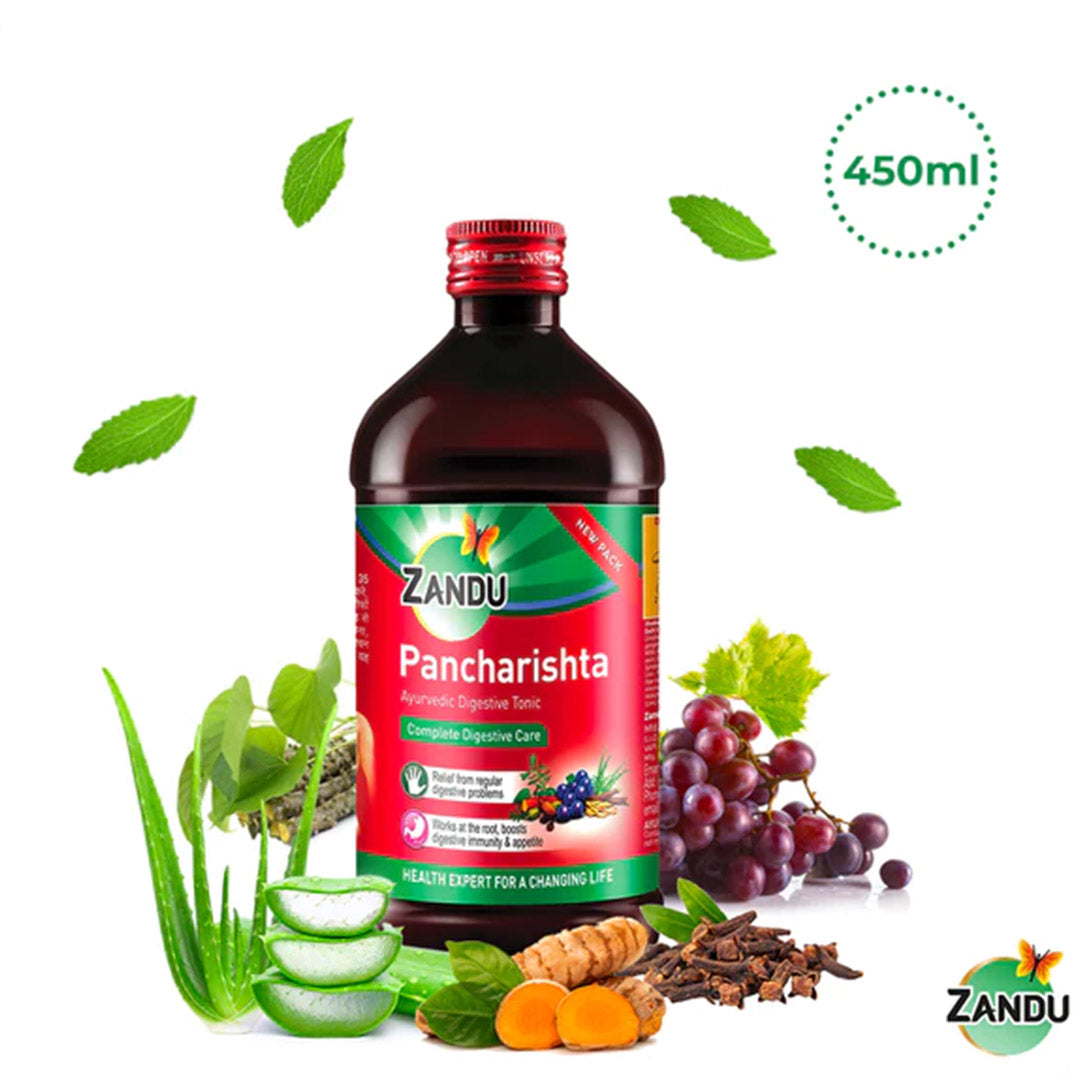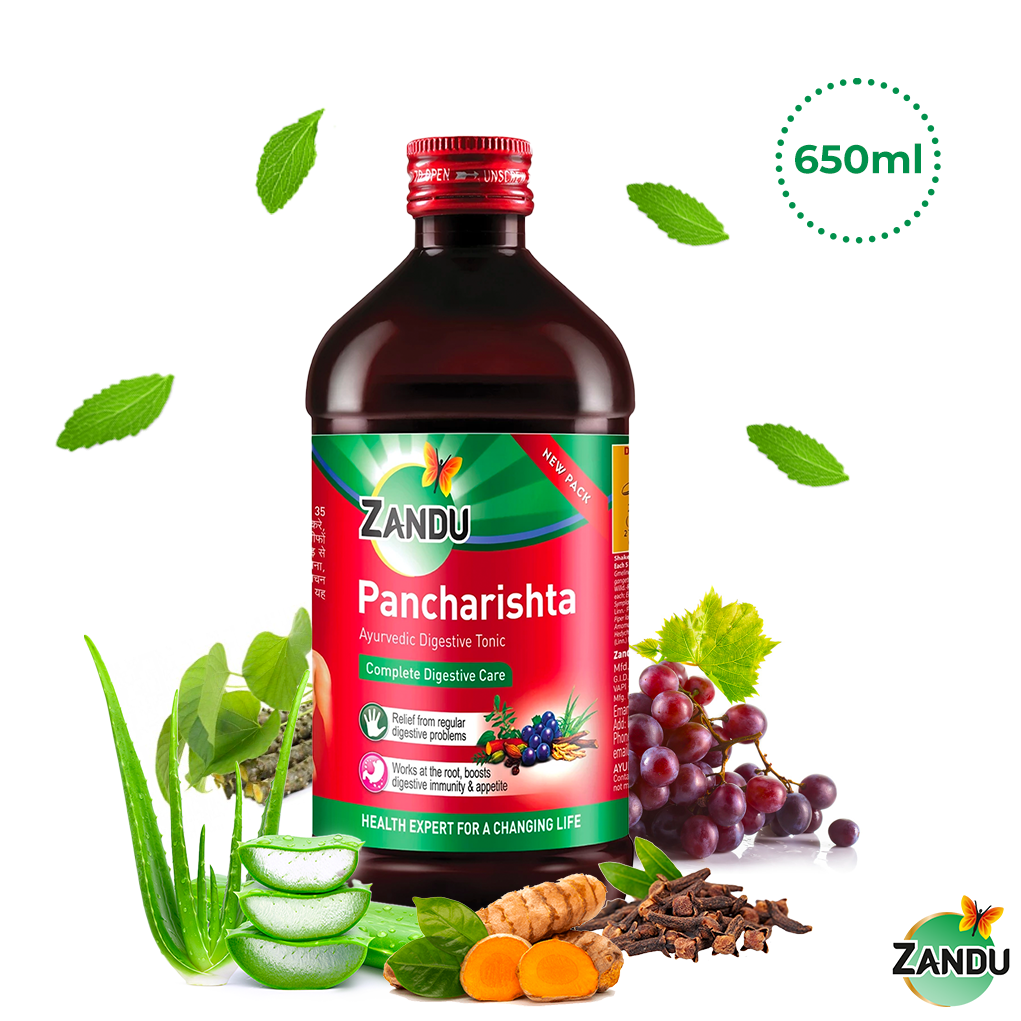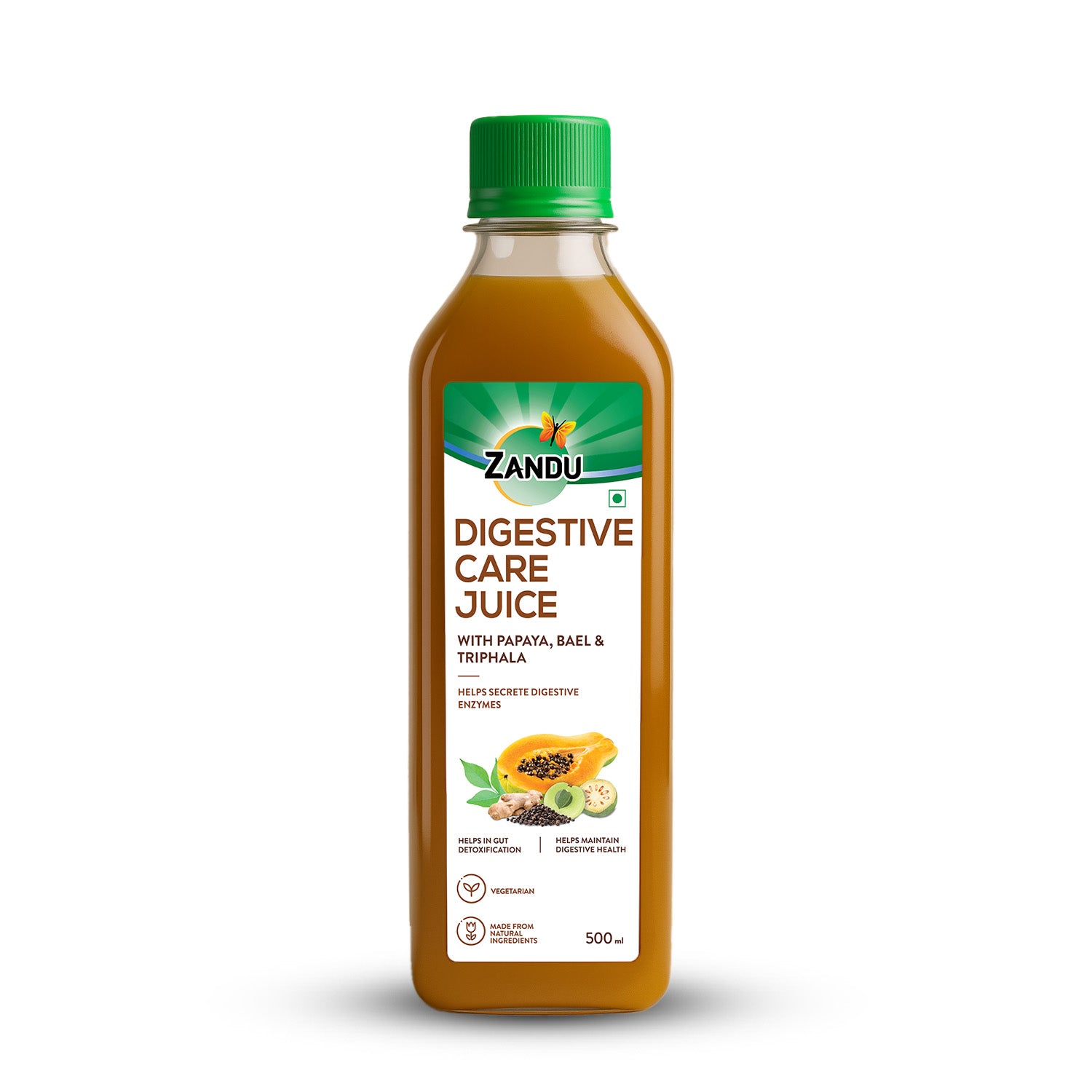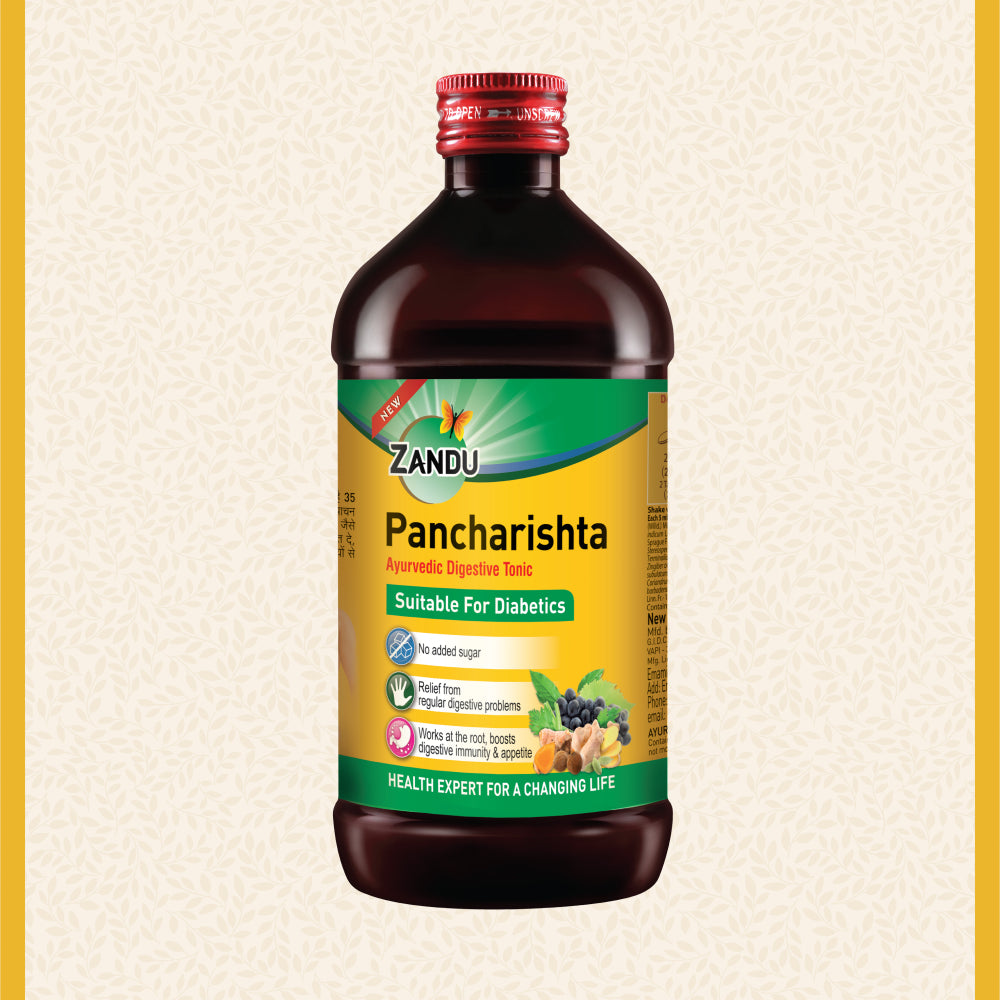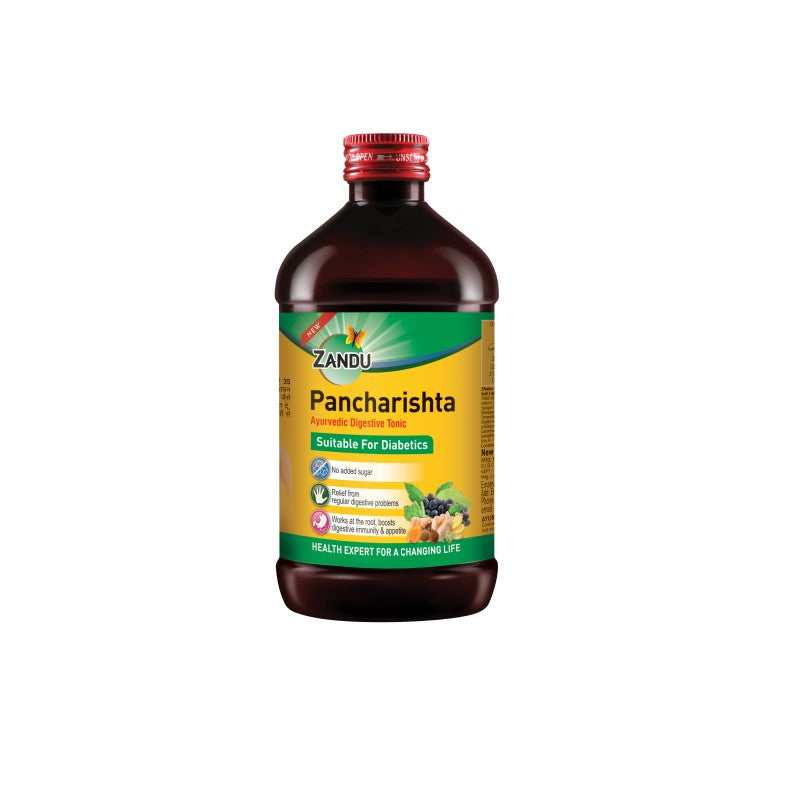Zandu Pancharishta Ayurvedic Digestive Tonic
Sale price
₹128
Regular price₹150 15% off
Zandu Digestive Care Juice
Sale price
₹224
Regular price₹280 20% off
Zandu Pancharishta (Suitable for Diabetics)
Sale price
₹156
Regular price₹164 5% off
Ayurveda offers natural remedies for GERD, focusing on balancing digestive fire, improving digestion, and reducing acid reflux. Herbal formulations like Zanducare's GERD products can provide relief.
Zanducare products for GERD work by soothing the digestive system, reducing acid secretion, improving digestion, and providing relief from symptoms like heartburn and acid reflux.
Yes, Zanducare products are formulated using Ayurvedic principles and undergo rigorous quality checks. They are safe to use and can help manage GERD symptoms effectively.
Yes, along with using Zanducare products, adopting lifestyle modifications like maintaining a healthy diet, managing stress, and avoiding trigger foods can further enhance the management of GERD.
The time it takes to experience relief may vary from person to person. Consistent use of Zanducare products, along with a healthy lifestyle, can help alleviate symptoms over time.
Zandu Pancharishta Ayurvedic Digestive Tonic is the best Ayurvedic medicine for GERD. It is made from 35 Ayurvedic herbs that enhance immunity and appetite.
There is no guaranteed evidence of curing GERD permanently. You can manage its symptoms by concentrating on improving dietary habits, lifestyle, and stress management.
When it comes to chronic diseases like GERD, the focus shifts from curing to long-term management. The plan should be to address symptoms, heal oesophagal damage, and prevent complications.
Some of the herbs that can provide fast relief from GERD are amla, shatavari, yashtimadhu, haritaki, guduchi, and shankhpushpi.

